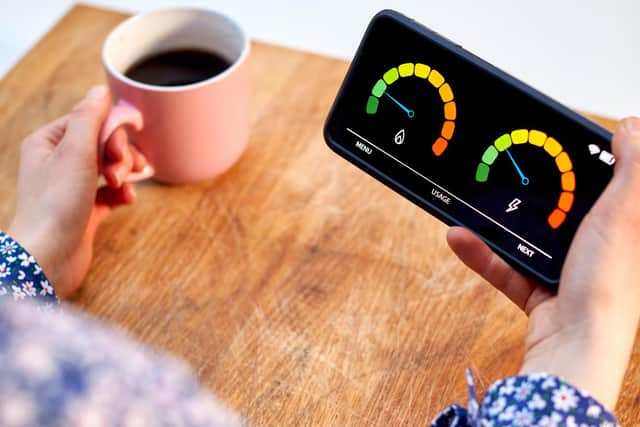Smart meters are sometimes not so clever - Martyn James
Smart meters are amazing in theory. They can help us save money by showing our energy consumption in real time. They can help spot billing problems early on – and they can help us all reduce our carbon footprints. The only problem is, lots of them don’t work.
According to a recent report by the National Audit Office, 57 per cent of all meters in the UK – a whopping 32 million – are now smart meters. Yet three million are not “working as intended”.
Advertisement
Hide AdAdvertisement
Hide AdThat’s an astonishing figure. Yet I’m not surprised. Because for years now, readers have been contacting me to tell me about their smart meter nightmares.


Because the Government set unrealistic targets – and as a result of poor planning and training of engineers – the smart meter rollout has been a bit of a botch job.
The good news is the second generation of meters seem to be working well. But there are still concerns about connectivity and a lack of engineers to tackle faulty meters. So here’s my guide on how to identify and deal with a smart meter problem.
Get to know your meter. They were supposed to simplify things, but smart meters are a little complicated and hard to understand in my opinion. There are usually guides to your meter and how it works online or on YouTube so take five minutes to understand the meter that you have and what each display means.
It goes without saying that if the display goes blank, something is wrong. But other signs that things might not be working normally include flashing displays, unusual symbols and screens that seem to stick. Take a picture or short video to save some time when you contact the energy firm.
One of the most common problems with smart meters is connectivity. Your smart meter should be sending regular readings to the energy provider at anything from monthly to daily intervals.
If you’re not sure if this is working, you can check what readings are registered through your online account or app. The energy firm can conduct some tests remotely so get them involved as soon as possible. They should also explain how to record manual readings in the meantime (take pictures too).
Use an energy monitor. Frankly, you shouldn’t have to buy a one to establish you’ve got a problem, but having an energy monitor is a good way to keep on top of how much energy you are actually using. They range considerably in price and quality so do your research first and get recommendations from friends and family.
Advertisement
Hide AdAdvertisement
Hide AdPrepare for a week of readings. Before your energy provider will send out an engineer, they may ask you to take readings of your meter once a day for seven days, to see if there’s an obvious problem.
This might not show up anything unusual at first, so if you feel the bills don’t reflect your energy usage ask the business to investigate this as a complaint.
Trust your instincts. If your energy consumption has gone up considerably (and you’ve not made any significant lifestyle changes) then that suggests there’s an issue.
Note down some details of your living situation to make it clear that your meter readings don’t make sense. For example, if you live alone and work in an office during the week, you shouldn’t be using much energy at all.
Push back and take it further. Energy, like all regulated sectors, has a free Energy Ombudsman service you can go to if you are unhappy with how a business has handled your complaint.
The Energy Ombudsman will ask you to go through the firm’s complaints process first, but if they haven’t sorted things out within eight weeks, you can take your complaint to them.
Martyn James is a leading consumer rights campaigner, TV and radio broadcaster and journalist.
Comments
Want to join the conversation? Please or to comment on this article.